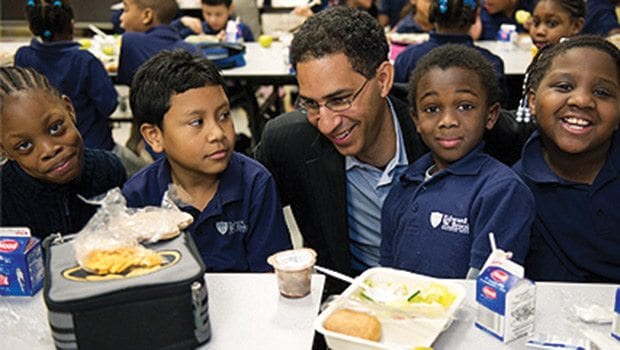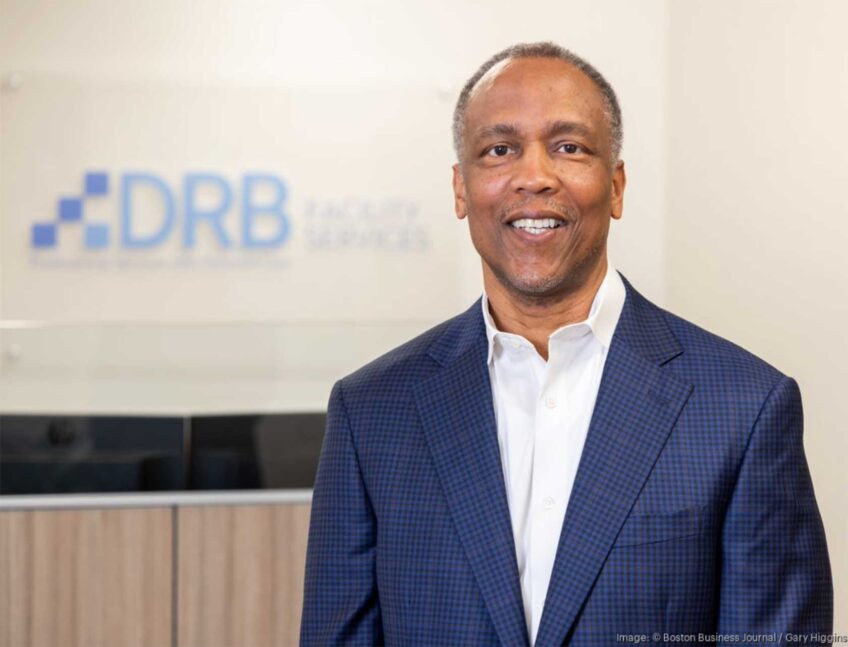

Author: Photo courtesy of Boston Impact InitiativeDeborah Frieze, managing partner of Boston Impact Initiative
The Boston Impact Initiative, an organization that supports community organizations through loans and grants, has made its first equity investment in a local business, backing Roxbury-based City Fresh Foods.
The move is seen as an expansion of the Initiative’s efforts to provide sources of investment cash to businesses and organizations in Boston’s urban neighborhoods. In particular, the investment focus will be on existing local businesses that provide services to the diverse communities of color throughout the city.
Boston Impact Initiative founders, the father-daughter team of Michael Frieze and Deborah Frieze, view City Fresh Foods as the perfect first investment. The company has served Boston for 20 years with its food services that provide healthy meals to child care organizations, schools, eldercare facilities and major customer Meals-on-Wheels.
City Fresh Foods is lauded not only for its efforts to educate urban communities about the importance of healthy food, but also for supporting local food producers.
Deborah Frieze calls the company an anchor in Boston’s “urban food movement.”
“This is exactly the kind of business that we would like to help grow,” said Frieze, who serves as Boston Impact Initiative managing partner.
With the equity funding, the Initiative and its investment partner Cienega Capital both become minority shareholders of City Fresh Foods, which was started by brothers Glynn and Sheldon Lloyd. Sheldon is the company’s CEO and Glynn is the chairman of the board.
Financial terms of the deal were not released.
“We are both very excited about these investors,” said Glynn Lloyd.
According to Lloyd, the investment will allow City Fresh to continue to work on improving its business model and find better ways to serve its customers.
The company currently has a 14,000-square-foot facility in Roxbury, generates about $9 million a year and has close to 100 employees.
But for the Lloyd brothers the company’s current success is not enough. They also have plans to start to convert the business into a worker-owned company in which the employees have a stake in the business. They both see this as another way City Fresh can give back to the community by helping to create wealth.
For this, the new investment was crucial, as Boston Impact Initiative and Cienega Capital combined to buy out the shares of Unidine Corp., a previous investor in City Fresh that was not in support of some of the brothers’ future plans for the business, particularly the worker-owned concept.
Now, though, all the shareholders and investors are on the same page — a welcome relief for the brothers that they believe really opens up the potential for their business.
Three years running
“Even though we are a 20-year-old company, we are still in this mode of standardizing what we do at City Fresh,” Lloyd said. “The question is how do we model the business and continue to be a pioneer as a company.”
The Initiative was founded in 2012 and began its work through loans and grants to community organizations. Since its start is has provided $1.2 million in loans and grants to businesses and organizations. Most of its lending is in the $50,000 to $250,000 range, but it has gone as low as $10,000.
It has provided funding to about a dozen companies or organizations, including 88 Acres, Cero, City Feed and Supply, Crop Circle Kitchen and Tony Williams Dance Studio.
It is part of a movement of community lending organizations that look to fill the gaps that traditional lenders and big banks leave — the challenge being that small businesses or nonprofit organizations often do not fit the criteria these lenders and banks establish in order to get loans. Also the small size of the loans — even up to $250,000 at the high end of what the Initiative does — is not appealing. Traditional lenders and banks just don’t see enough profit in it to be bothered.
But the bottom-line numbers game is not what interests organizations like the Boston Impact Initiative. Return on investment is an important factor, but equally important is how a company like City Fresh Foods impacts the community and how important it is to keep it around.
Banks and traditional lenders don’t measure community impact because it’s not a number they can crunch, and it is certainly not considered to be profit.
For the Boston Impact Initiative, community impact is the bottom-line profit that matters the most.
Crowdfunding
In recent times, the concept of “crowdfunding,” or getting money for a project or small business venture by raising many small contributions from individuals, typically through the Internet, has gained a lot of attention in the media. But crowdfunding is only one of the many ways small businesses or organizations can get creative with backing.
The Initiative looks to bundle some of these options together to have pretty much any answer to find the cash for the small businesses and organizations it works with.
Moving into equity investment — through which the Initiative provides cash, gets a percentage of the company and only makes money if the business makes money — is a riskier proposition than just lending.
Traditional equity investment investors expect in the range of 8 percent return on the money.
The Initiative is asking below market return — from zero percent to 5 percent equity return.
While excited about the new direction, the Initiative cannot afford to throw money around and will choose its investments wisely.
“Equity is a high risk thing so we have to be careful,” Frieze said.
With the widespread ability to fund businesses in the best way that works — be it equity investment, loans or grants — Frieze is very excited about the future of the Boston Impact Initiative and its ability to be a useful tool for local businesses and organizations. And she is thrilled at the chance to be involved in the economic growth of the city’s communities of color.
“We are definitely on the hunt for opportunities,” Frieze said. “If we can find another equity opportunity we would be up for that.”






